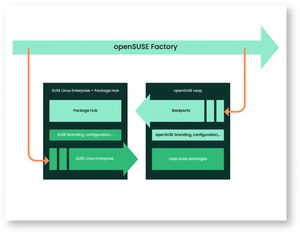Open Source Software
digital file cabinets in dark room with one cabinet open
Data Storage
Why and How to Set Up Ceph Storage for Your Data CenterWhy and How to Set Up Ceph Storage for Your Data Center
We break down why you should (or shouldn't) use the free, open source storage platform Ceph inside a data center – as well as offer a quick start guide for deploying it today.
Subscribe to the Data Center Knowledge Newsletter
Get analysis and expert insight on the latest in data center business and technology delivered to your inbox daily.








.webp?width=100&auto=webp&quality=80&disable=upscale)














.png?width=300&auto=webp&quality=80&disable=upscale)














.jpg?width=700&auto=webp&quality=80&disable=upscale)



